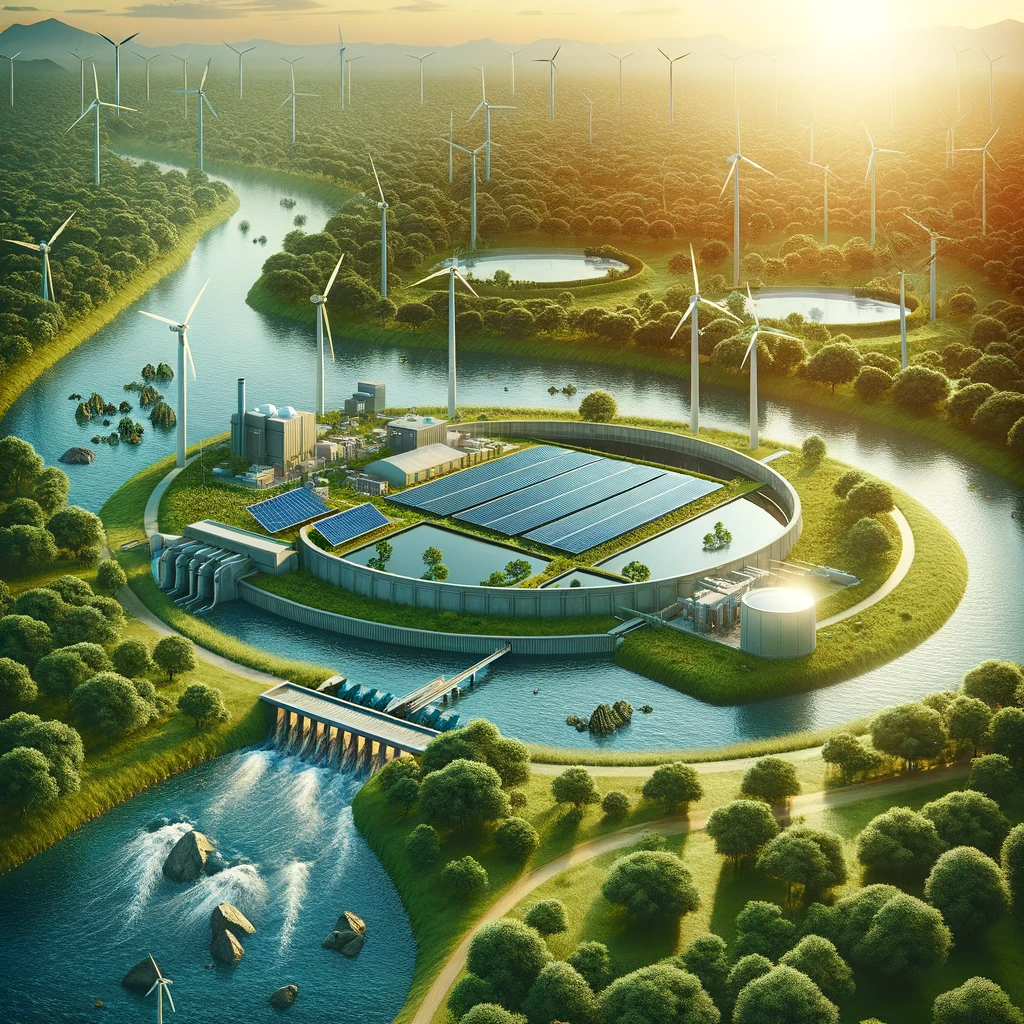In an era where environmental conservation is paramount, wastewater treatment systems are no exception to the green revolution. Implementing sustainable wastewater treatment systems is not just a responsible choice; it’s a necessity for preserving our planet’s water resources and ecosystems. In this article, we’ll explore eco-friendly methods, cost-effective solutions, and the key steps to a cleaner, greener future through sustainable wastewater treatment.

The Urgent Need for Sustainable Wastewater Treatment:
Wastewater, laden with pollutants and contaminants, poses a significant threat to the environment and public health if not treated properly. Traditional treatment methods can be resource-intensive and may have adverse ecological impacts. Sustainable wastewater treatment systems offer a path to mitigate these issues.
Key Principles of Sustainable Wastewater Treatment:
1. Reduce, Reuse, Recycle:
The mantra of sustainability applies to wastewater treatment as well. Sustainable systems aim to reduce water consumption, reuse treated water for non-potable purposes (e.g., irrigation), and recycle nutrients and energy.
Benefits:
- Decreases the demand on freshwater sources.
- Cuts down on wastewater discharge.
- Minimizes environmental impact.
2. Energy Efficiency:
Sustainable systems focus on reducing energy consumption through innovations like energy-efficient pumps, aeration systems, and the utilization of renewable energy sources such as solar or wind power.
Benefits:
- Lowers operational costs.
- Reduces the carbon footprint of treatment plants.
3. Natural Treatment Processes:
Green technologies incorporate natural treatment processes, like constructed wetlands, which mimic natural ecosystems to remove contaminants from wastewater.
Benefits:
- Enhances water quality.
- Provides habitat for wildlife.
- Requires less energy and chemicals.
Sustainable Wastewater Treatment Methods:
1. Constructed Wetlands:
Constructed wetlands are designed systems that use aquatic plants and microbes to break down and remove pollutants from wastewater. They are cost-effective, require low maintenance, and provide a habitat for wildlife.
Applications:
- Municipal wastewater treatment.
- Industrial wastewater treatment.
2. Anaerobic Digestion:
Anaerobic digestion involves the breakdown of organic matter in the absence of oxygen, producing biogas (methane) as a byproduct. This biogas can be used as an energy source.
Applications:
- Treatment of organic waste.
- Generation of renewable energy.
3. Membrane Bioreactors (MBRs):
MBRs combine biological treatment with membrane filtration, resulting in high-quality effluent and efficient solids separation.
Applications:
- Residential and commercial wastewater treatment.
- Industrial applications.
4. Algal Ponds:
Algal ponds use algae to capture and convert nutrients from wastewater into biomass. This method is not only effective in nutrient removal but also provides a potential source of biofuel or animal feed.
Applications:
- Nutrient removal in wastewater treatment plants.
- Algae-based biofuel production.
Implementing Sustainable Wastewater Treatment:
- Assessment and Planning: Begin by assessing your current wastewater treatment system and identifying areas where sustainable practices can be integrated. Develop a comprehensive plan that outlines your sustainability goals and strategies.
- Invest in Green Technologies: Upgrade your treatment system with eco-friendly technologies that align with your sustainability goals. Consider options like constructed wetlands, MBRs, or anaerobic digestion.
- Optimize Energy Use: Implement energy-efficient equipment and practices to reduce the energy consumption of your treatment plant. Explore renewable energy sources like solar panels or wind turbines.
- Reuse and Recycle: Establish a water reuse and recycling program to maximize the utility of treated water. This can involve using treated water for irrigation, cooling processes, or industrial applications.
- Monitoring and Maintenance: Regularly monitor the performance of your sustainable wastewater treatment system and conduct routine maintenance to ensure it operates efficiently.
- Education and Outreach: Educate staff, stakeholders, and the community about the benefits of sustainable wastewater treatment and the importance of water conservation.
The Path to a Greener Future:
Implementing sustainable wastewater treatment systems is a crucial step toward a cleaner, greener future. By reducing environmental impact, conserving water resources, and harnessing renewable energy, these systems not only protect our planet but also offer cost-effective, long-term solutions. Embrace the green revolution in wastewater treatment and be part of the solution to secure a more sustainable and environmentally friendly world for generations to come.
